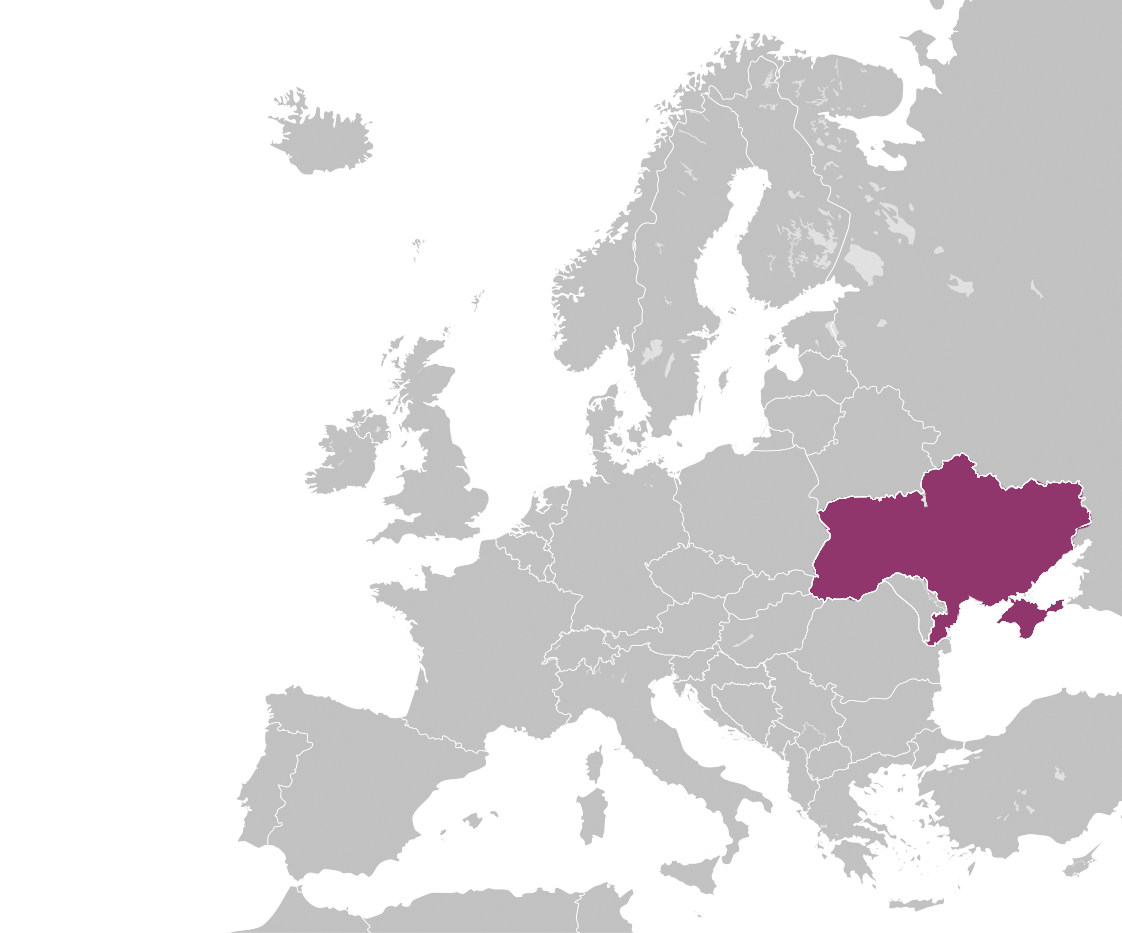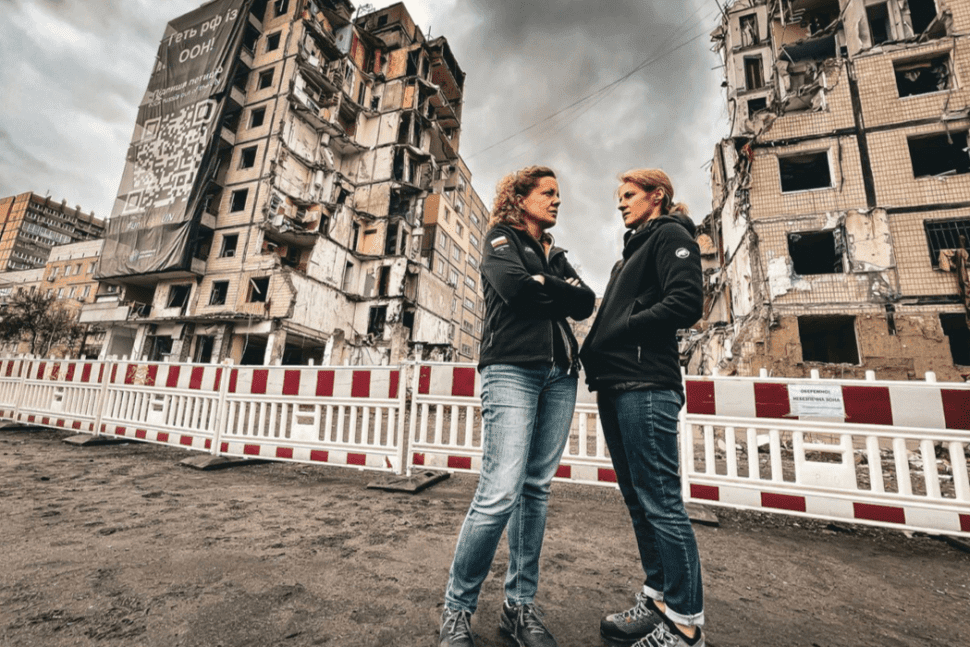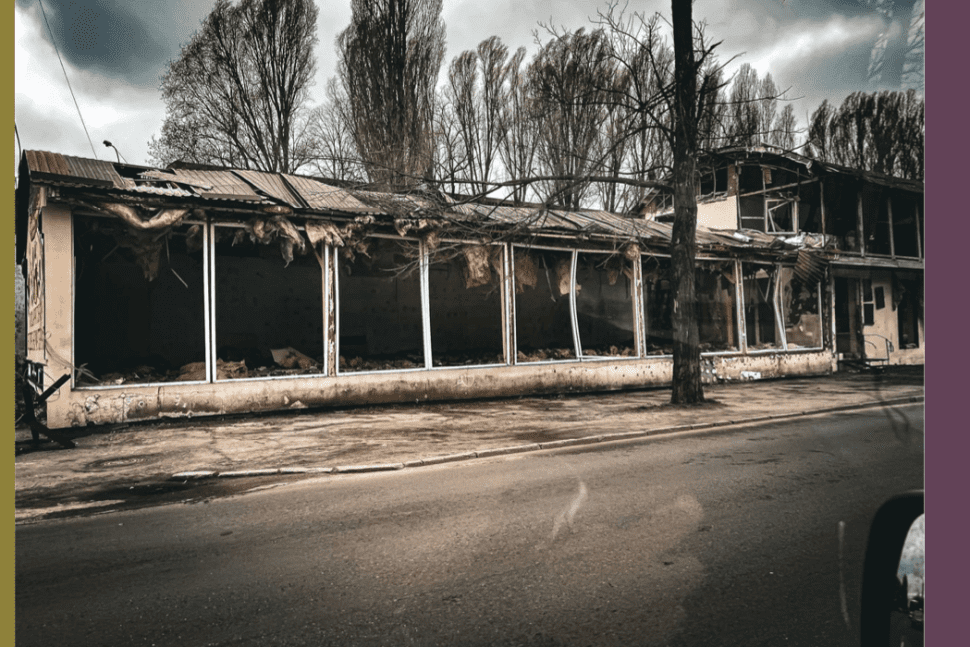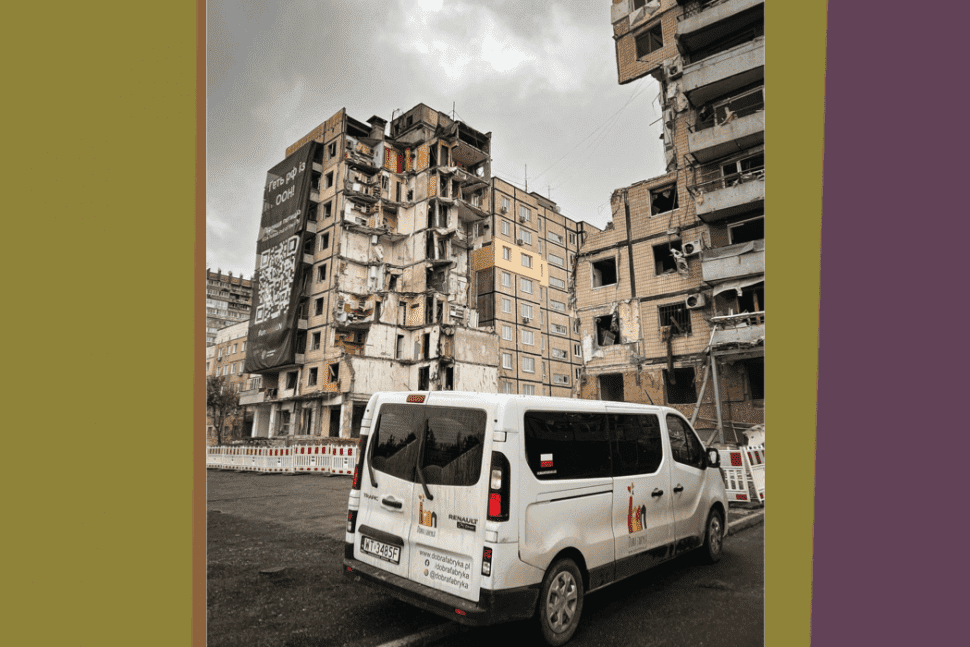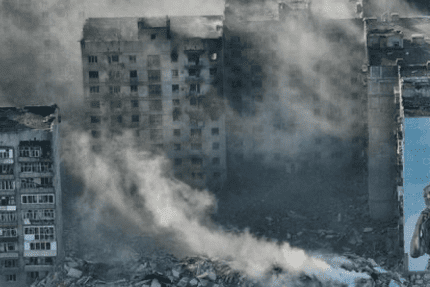“A Russian missile gets here in five minutes,” says the mayor of Zaporozhye. “When the alarm sounds, it can already be hitting its target. The Russians are targeting clusters of people: humanitarian aid distributions, evacuation assembly points, it doesn’t matter whom, as long as they can kill.”
The Dnieper has taken on water. Near Kiev the river broke through the embankments and in Dnipro and Zaporizhzhya it crept dangerously close. This is the result of torrential rains and open floodgates on Belarusian dams, which are only expected to add to the Ukrainians’ troubles. Soldiers on the front line have it worse. They have been stuck in the muck for days. They know they will not leave the trenches soon. So they wait for spring.
We reach Dnipro. The city is dishevelled, but at first glance there is no sign of war and unrest. Only sandbagged monuments, armed soldiers and concrete barriers signal that things are not normal. The siren is howling again, but sirens howl here every day. It seems to have stopped affecting the residents, but they have to struggle for normality here every day. They go out for coffee with friends, try to laugh, shop and get up for work.
The city became a temporary home for several hundred thousand people, who watched the apocalypse from basement level in their frontline villages and towns. Eventually, they were talked into evacuating. It is no longer possible to live there. There is only fighting there now.
We are moving on, to Zaporozhye. The mayor of the city is waiting for us. He wants to tell us how to help, and how it is better not to. Several dozen kilometres separate us from the front. From time to time we hear the rumble of Ukrainian artillery. They already know the Good Factory well here. They know that if necessary, we will go anywhere. They say that people matter to us, not numbers. They have heard this many times. They are finally convinced.
“The fact that you made it here is heroic. Thank you for not letting us feel alone,” says the mayor of Zaporozhye. Let us move on to specifics.
– It is necessary to quickly rebuild what has been destroyed.
– Isn’t it too early for that?
– It’s not about bricks, windows and a roof over your head. People need to see the concrete mixers instead of the ruins. Otherwise they will lose faith in our strength.”
The front is different from Dnipro and Zaporizhzhya in that there you are afraid to admit that you are still alive, while here you have to live in such a way that no one intimidates you with death.



